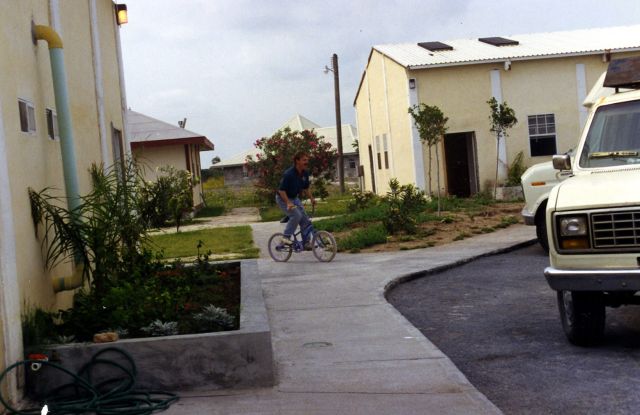“Just tell me what I have to do,” my subordinate requested.
“It’s not that easy, this assignment requires your discernment,” I replied.
“Well, how can I meet your expectations if you don’t clarify them?” He asked.
“I’m giving you broad expectations so that you have latitude to figure out for yourself how best to meet them. I want to partner with you, not give you a set of instructions.”
My subordinate wanted to reduce the task to a transaction. Knowing that our project required innovation and the synergy of good partners, I resisted. I didn’t want someone to paint by numbers.
I sensed an opportunity for partnership and needed help figuring out how to get there. It’s foundational to my call. It’s how this whole thing started. Look at what it says about the first believers:
“The believers shared a common purpose, and every day they spent much of their time together in the Temple area. They also ate together in their homes. They were happy to share their food and ate with joyful hearts.” Acts 2:46
I look at that example. You see three things:
I want to live like that. How about you?
Our American culture
My partnership with Karen (read the story
here) is the best partnership story I’ve got. Through 37 years of partnering, I’ve seen what a powerful tool it is. The good news is that we our the progeny of a Father who built us for partnership. It wasn’t good for “man to be alone.” So God created a partner for him.
The problem is we live in a transactional culture that gets you what you want with a quick point and click. We need to understand the difference between someone focused on transactions and someone focused on partnership. Here are some characteristics of each:
Transactional
•Quid Pro Quo
•If/Then
•Project-based
•Check the boxes
•Short-term
•Cost/benefit calculus
•American
•Sunday-only church
•Click & pay
Relational
•Win/Win (instead of Quid Pro Quo)
•“I want to bless you” (instead of If/Then)
•Relationship-based (instead of Project-based)
•“How can I help?” (instead of Check the boxes)
•Long-term (instead of Short-term)
•More blessed to give (instead of Cost/benefit calculus)
•Kingdom (instead of American)
•Home groups (instead of Sunday-only church)
•“Let me get to know you” (instead of Click & pay)
Which of these lists looks more like you? There is no shame in being raised in a transactional culture. We can’t help the fact that everything is instant and that our version of journaling is Instagram. We are creatures of the environment in which we were raised.
Kingdom culture
But Jesus talked about another way. His short-hand for that way was the word “kingdom.” His relationships went deep and he wants ours to do the same.
God calls his people to covenant – he built us for deep relationships. And the fact that we can connect and be known not just by friends, but by God himself should be an earth-shattering revelation to those who grasp it.
As we embrace God’s mission to bring not just good news, but fantastic news to people, we will have to partner. If we go outside our neighborhood and our personal network, we will have to rely on the trust of others.
If we go outside our country, we will have to rely on the cultural understanding and probably language fluency of others.
Jesus calls these people “
men of peace.” He talks about looking for them in
Matthew 10. They are the partners he has prepared for us already embedded in and familiar with the local context.
Think about all the people you would consider partners. Learning how to partner is a skill. You have to make the choice to unlearn your transactional habits if you are to press into the kingdom.
But oh the joy of life in the kingdom with partners you would die for and who would die for you. I’ve got a few and it’s awesome! There’s no better life than that. Jesus called it “abundant life.”
The bridge to it may look like a cross, but let me assure you, it will hold your weight.




Seth,
One of the deep benefits about long-term friendships–ours going on forty years–is that there is the often subtle subtext of comments, nuance of language, interpretation of metaphors–all rolled together with soft righteous rice like a favorite sushi roll in a favorite SOHO restaurant on some tame Thursday night in New York. I get what you are saying. As a Franciscan volunteer at Bethel Colony of Mercy–helping addicts and learning about my own life from their stories–we end up at the same stop at the transformative little trains we all traverse. “Relationships not transactions.” That is the living *gospel way* with God winks from our *Planet Maker* who always shines down incandescent graces–especially in our sleep. Love you brother. Let’s get a date to connect in August. Butch
Yes, Butch. How else do we get relational context but through spending time, lots of it, with others?
Yass! I wish everyone understood the worth of the fight!
But oh the joy of life in the kingdom with partners you would die for and who would die for you. I’ve got a few and it’s awesome! There’s no better life than that. Jesus called it “abundant life.”
#WhatTruth!
Yes, Rashidat – partners are among God’s greatest gifts in this abundant life he blesses his sons and daughters with. It is joy indeed!
One of my favorite moments in leadership was watching a coworker approach a leader with a difficult, gray-area situation. The leader listened to the situation and also agreed there was no clear right and wrong. Then he said, “This is your decision. I’ll stand with you whichever you decide.”
Being in Gainesville showed me a couple of areas where I’m still very transactional. The beautiful thing is God’s already given me opportunities to step out of that and put into practice what I’m learning.
I love your self-awareness, Katie, and your openness to grow. Beautiful traits in anyone, but especially those of us representing the King of Kings.
Love this ! Very good article…